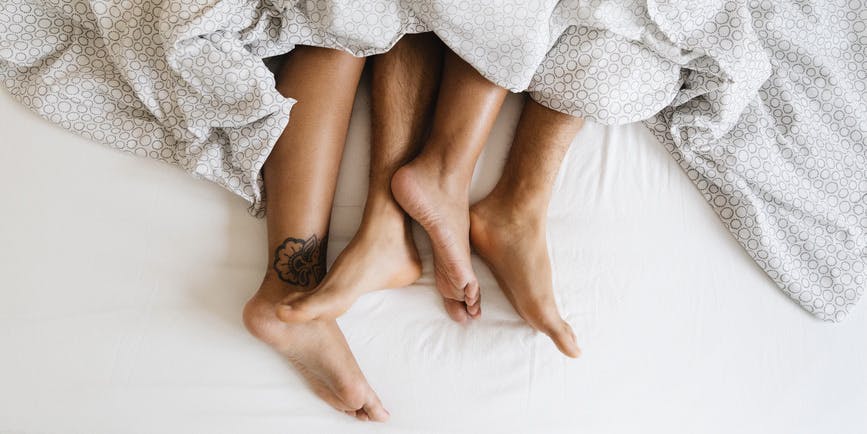
What are some common side effects of birth control?

Key Points:
- Common birth control side effects include headache, nausea, sore breasts and period changes.
- Most side effects are mild and go away after 2-3 months.
- If your birth control causes bothersome symptoms, talk to your healthcare provider. Sometimes it takes a few tries to find the right method for you.
Dr. B can help you get affordable prescription birth control treatment online with a confidential $15 consultation. But with so many options, you may not know which is the right birth control for you!
Maybe you want to prevent pregnancy with a method that’s really easy to use, Maybe you want to also protect against sexually transmitted infections (STIs). No matter what, it’s essential to consider all potential side effects before starting birth control.
Here’s what to expect with both hormonal and non-hormonal contraceptive methods.
Common side effects of birth control
Side effects differ depending on the type of birth control you use and how they prevent pregnancy.
Non-hormonal birth control causes very few side effects. If a condom, gel, spermicide or other non-hormonal methods irritates your skin, this can usually be solved by switching to a different brand or type. (For example, people with a latex allergy should avoid latex condoms.)
Hormonal birth control can sometimes cause side effects. These include:
- Headache
- Nausea
- Sore breasts
- Changes in your period length or flow heaviness
- Stopped or missed periods
- Spotting (light bleeding or brown discharge) between periods
Side effects are most common when starting the medication and usually resolve within 2-3 months. Many can also be managed with a few lifestyle tweaks. For example, if the pill makes you feel nauseated, you can try taking it right before bed.
Because hormonal birth control changes your body, let’s dig deeper into a few common questions about potential side effects.
Can birth control cause depression?
Barrier methods like condoms do not have any impact on mood. And some researchers think certain kinds can actually improve mood disorders by regulating and steadying hormone levels.
But some evidence suggests that hormonal birth control can cause mood problems like depression. Newer methods and those lower in progesterone are less likely to cause these issues. So for those with a history of depression, low-dose pills or IUDs with low or no progesterone may be safer.
Can birth control cause anxiety?
The link between birth control and anxiety isn’t clear. While the hormones in birth control can affect mood, researchers aren’t sure if they can increase anxiety. It’s also possible that people worried about pregnancy may already be at increased risk for anxiety.
Can birth control make you tired?
Some forms of hormonal birth control (including the patch, ring, shot, implant or high-dose pills) can make you feel tired. Daytime sleepiness or fatigue usually gets better in a few months. If it doesn’t, your symptoms might be caused by something else.
Can birth control cause acne?
Combination pills and other forms that contain both progestin and estrogen can treat acne to make it better—not worse! (It can take up to six months to see improvements.)
Some research shows that progestin-only methods (like the Mirena IUD) might cause acne breakouts. If this bothers you, talk to your doctor about switching to a form that also contains estrogen.
Can birth control cause hair loss?
Birth control that contains progestin (like the pill, patch, ring, shot and implant) may lead to some hair loss. It doesn’t happen to everyone—and it’s more common in people with a family history of hair loss. Switching to a low-dose progestin or non-hormonal method can help.
Can you have a missed period on birth control?
Some hormonal forms of birth control (like the pill, patch or vaginal ring) can make your period lighter, less frequent or stop altogether. The implant or IUD often makes periods stop altogether.
You can also use some methods of birth control to intentionally keep your period from coming, like using a new vaginal ring, pack of pills or patch back-to-back. Talk to a healthcare provider to find out if it’s safe for you to use birth control this way.
Can birth control make you gain weight?
The shot (Depo-Provera) is the only form of birth control linked to weight gain. The implant (Nexplanon) might cause minor weight gain (about 5 lb)—but applicable study evidence is weak. And not everyone who uses these methods gains weight.
Birth control that doesn’t cause weight gain includes the pill, ring, patch and IUD.
Can birth control cause infertility?
Birth control does not cause infertility—no matter how long you’ve been using it or which method you choose. It can take a few months for cycles to return to normal after stopping some hormonal forms (like the shot). And sometimes, birth control can regulate menstrual cycles and hide underlying fertility problems like endometriosis or polycystic ovary syndrome (PCOS).
The only exception to this is permanent forms like a vasectomy or tubal ligation. These methods can occasionally be reversed through surgery—but this isn’t guaranteed.
What birth control is best for you?
The bottom line? Birth control should not make you feel sick. If you experience bothersome side effects, talk to your healthcare provider. They may prescribe a different brand or method that’s better for you.
Sometimes it takes a few tries to find the right birth control. Prevention needs can also change over time. Some people prefer an easily reversible form (like the pill or condoms) until they are ready to get pregnant. After having kids, they may desire a more long-term form like a vasectomy or IUD.
How Dr. B can help you get birth control online
If you have more questions or are ready to get birth control online, Dr. B can help! Get started with a $15 online health consultation today.
A licensed provider will guide you through the best options for your lifestyle and health history. We’ll show you the lowest possible costs at nearby pharmacies and send the prescription to your pharmacy of choice. Get started on a discreet, convenient consultation today!
Sources:
Arowojolu, A. O., et al. (2012). Effect of birth control pills on acne in women. Cochrane.
Barr, N. G. (2010). Managing adverse effects of hormonal contraceptives. American Family Physician.
Beksinska, M., et al. (2021). Weight change among women using intramuscular depot medroxyprogesterone acetate, a copper intrauterine device, or a levonorgestrel implant for contraception: Findings from a randomised, multicentre, open-label trial. EClinicalMedicine.
Bezerra AG, et al. (2020). Hormonal contraceptive use and subjective sleep reports in women: an online survey. Journal of Sleep Research.
Cooper DB, et al. (2022). Oral contraceptive pills. StatPearls Publishing.
Desai, K., et al. (2021). Understanding hormonal therapies: overview for the dermatologist focused on hair. Dermatology
Hall, K. S., et al. (2015). Contraception and mental health: a commentary on the evidence and principles for practice. American Journal of Obstetrics and Gynecology.
Institute for Quality and Efficiency in Health Care. Acne: Which birth control pill can help improve your complexion?
Mu, E., et al, (2022). Hormonal contraception and mood disorders. Australian Prescriber.
Planned Parenthood. What are the side effects of the birth control pill?
Sathe, A., e al. (2022). Medroxyprogesterone. StatPearls Publishing.
Sign up for the free Dr. B newsletter for a weekly report on the latest in healthcare + research-based advice for staying healthy and mentally well.





